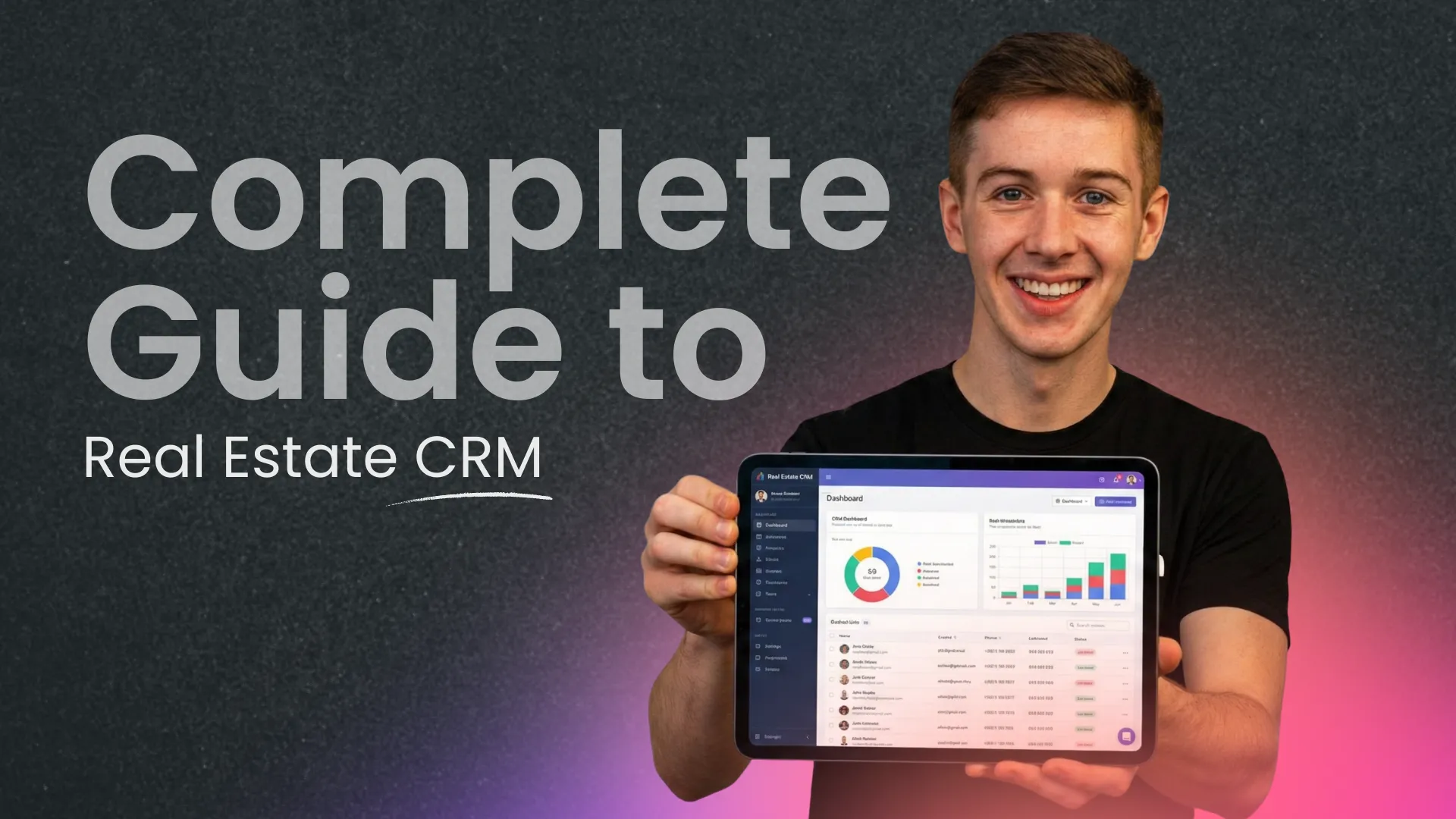
Solo entrepreneurs increasingly use AI to build startups that rival large enterprises in efficiency and innovation. By leveraging advanced AI tools, no-code platforms, and cloud services, a single founder can manage customer service, product development, marketing, and operations without a large team. This allows one person to compete with established companies on a global scale, often at a fraction of the traditional cost.
The rise of these AI-powered solo startups challenges the notion that significant capital and large teams are necessary for success. Instead, agility and technology enable them to move faster and adapt more quickly to market demands. As AI tools become more accessible, the barrier to entry for solo founders continues to drop, creating new opportunities for innovation and growth.
Launch Your App Today
Ready to launch? Skip the tech stress. Describe, Build, Launch in three simple steps.
BuildThese startups combine automation with strategic use of freelancers or contractors when needed, maximizing output while keeping overhead low. The strategies and tools that make this possible are reshaping entrepreneurship and redefining what a startup can look like in today’s technology-driven economy.
Rise of Single-Person Startups Competing With Enterprises
Single-person startups are using AI to deliver products and services traditionally handled by larger companies. These founders leverage automation, AI-driven tools, and freelance networks to reduce overhead and scale efficiently. However, solo makers face unique hurdles in talent, resources, and market reach.
Market Disruption by Solo Founders
Solo founders harness AI to automate operations normally requiring large teams. This allows a single individual to build, launch, and grow sophisticated products with minimal staffing. AI tools enhance capabilities in areas like content creation, customer support, and data analytics, enabling rapid iteration and cost efficiency.
This shift fosters highly agile startups that can outpace traditional enterprises in speed and innovation. Often, solo makers rely on a blend of AI-driven workflows and external contractors, forming lean, flexible business models. These startups disrupt markets by lowering barriers to entry and redefining scale.
Challenges Facing Single-Person Startups
Despite AI’s advantages, solo entrepreneurs face capacity limits and talent gaps. Managing all aspects of business—including strategy, development, marketing, and support—can overwhelm individual founders.
Resource constraints also impact market outreach and fundraising. Solo makers may find it difficult to build credibility against enterprises with established brands and deep networks. Additionally, dependency on AI tools and contractors introduces risks around quality control and operational reliability.
Effective solo founders mitigate challenges by prioritizing core differentiators and selectively outsourcing tasks. They must carefully balance automation with human judgment to sustain growth and maintain competitive quality.
Leveraging AI to Level the Playing Field
Solo entrepreneurs gain access to advanced tools and workflows that help bridge gaps against larger firms. AI empowers them to create efficient processes, reduce costs, and improve output quality without large teams or budgets.
Core Benefits of Artificial Intelligence for Solo Entrepreneurs
AI provides solo founders with capabilities previously limited to enterprises. They can analyze deep data insights to understand customer behavior and tailor offerings.
By using AI-generated blueprints, entrepreneurs quickly map out product designs and strategies. This approach accelerates decision-making and reduces trial and error.
Additionally, expert workflows integrated with AI enable solo operators to maintain high standards across marketing, development, and customer service. These workflows automate routine tasks and optimize performance, making small teams function like large ones.
Automation and Enhanced Productivity
Automation powered by AI saves solo founders time on repetitive work. Tasks like content creation, customer support, and campaign management can be automated with intelligent tools.
This shift allows entrepreneurs to focus on strategic goals, innovation, and scaling. AI tools can monitor operations 24/7, providing real-time alerts and optimizations without human oversight.
Enhanced productivity also stems from seamless integration across platforms. AI + expert workflow systems connect marketing, sales, and finance functions, minimizing friction and maximizing efficiency.
Reducing Development Costs Through AI
Developing products and services traditionally requires significant investment. AI reduces these costs by automating coding, testing, and prototyping processes.
Entrepreneurs can use AI-driven development environments and AI-generated blueprints to design and refine offerings faster. This lowers reliance on expensive talent and shortens time to market.
Cloud-based AI tools further reduce overhead by offering scalable, pay-as-you-go infrastructure. This makes sophisticated technology affordable for single-person startups competing with large enterprises.
No-Code and Low-Code Platforms Empowering Solo Founders
Solo founders often rely on tools that reduce technical barriers and speed up development. Platforms that require little or no coding enable rapid creation and testing of ideas, making it feasible for one person to handle complex tasks usually needing a team.
Accelerating MVP Development
Low-code platforms help founders build a minimum viable product (MVP) quickly by providing reusable components and automated workflows. This significantly cuts down development time, allowing early testing with users to validate concepts before heavy investment.
Tools like imagine.bo allow solo founders to rapidly prototype and iterate their products without deep programming knowledge. This increases efficiency and shifts focus towards refining features and customer experience rather than debugging code.
The ability to produce functional MVPs rapidly also lowers costs. Solo founders can launch and improve products on tighter budgets while maintaining competitive speed against larger enterprises. Automation embedded in many platforms further reduces manual tasks.
Zero-Code Solutions for Application Building
Zero-code platforms require no programming skills, using drag-and-drop interfaces and pre-built modules for building business applications. These tools empower solo founders to create production-ready apps independently.
Common zero-code platforms offer integrations with databases, payment systems, and analytics tools, providing end-to-end solutions for startups. This allows founders to handle customer acquisition, support, and product management within the same environment.
For instance, zero-code tools support creating SaaS products by handling front-end design and back-end logic simultaneously. This eliminates the need for hiring developers or learning programming languages, making entrepreneurship accessible to non-technical founders.
How imagine.bo Enables Single-Person Startups
imagine.bo equips solo founders with precise tools that transform app ideas into live products quickly and securely. From idea description to deployment, it handles technical complexity while maintaining professional standards and scalability.
Simple Idea Description and Planning
The platform starts by letting users describe their app idea in plain language. This input is transformed into an AI-generated blueprint that outlines a clear project structure and key features. Founders avoid technical jargon and get an immediate, visual plan.
imagine.bo supports planning by breaking down the app into workflows, user interfaces, and backend logic automatically. This helps solo entrepreneurs understand scope and functionality upfront without a developer. The transparent process also includes expert support to clarify details and optimize the concept.
Clear pricing options ensure startups know costs during this stage, avoiding surprises. The platform encourages launching quickly with options to run apps in private beta, reducing risk before scaling.
One-Click Deployment and Scaling
Once the blueprint is approved, imagine.bo enables one-click build and deployment of the full app. Users select hosting providers such as AWS, Google Cloud Platform (GCP), or Vercel and instantly launch their product without manual infrastructure setup.
The platform includes a scalable infrastructure designed to grow with user demand. Its automation handles server resources, load balancing, and performance optimization. This allows one-person startups to compete with larger enterprises on reliability and speed.
Deployment also integrates real-time analytics dashboards for monitoring user behavior, system health, and growth metrics. This data empowers founders to make informed decisions and adjust features quickly.
Professional-Grade Quality and Security
imagine.bo prioritizes security and compliance, conducting regular security checks aligned with standards like GDPR and SOC 2. This protects user data and builds trust without requiring deep security expertise.
The platform produces production-ready apps tested for quality assurance, including code reliability and performance stress tests. It reduces risks typical for solo startups lacking dedicated QA teams.
Expert support is available to troubleshoot issues, ensure best practices, and guide compliance needs. This combination of automation and expert oversight results in a professional-grade product suitable for enterprise-level expectations.
Expert Backup and Support Structures
Single-person startups often rely on external expertise to overcome technical challenges and accelerate development. Access to senior engineers and specialized consultants enables founders without deep programming skills to create sophisticated AI-driven solutions efficiently.
On-Demand Engineering Assistance
Many solo founders secure expert support through freelance platforms, technical co-founders, or engineering consultants. This flexible access to senior engineers helps tackle complex tasks like AI model integration, system architecture, and scalability.
Such arrangements allow startups to avoid hiring full-time staff but still benefit from high-level technical insight. It is common to delegate code reviews, infrastructure setup, or critical debugging to these experts. This approach reduces risks in early development and speeds product iteration.
Regular collaboration with external engineers also supports best practices in security and compliance, essential for enterprise-level competition. Having clear communication and project management tools ensures this on-demand help is timely and effective.
Building Confidence Without Technical Skills
Founders without programming backgrounds leverage AI tools designed to minimize coding requirements. Platforms with drag-and-drop interfaces, prebuilt modules, and API-based integrations enable business owners to focus on product direction rather than technical details.
Additionally, some AI services offer built-in automation and generative AI capabilities to generate or customize code snippets as needed. This lowers the barrier to entry and shortens time-to-market for individual entrepreneurs.
Expert support complements these tools by providing guidance on workflow optimization and troubleshooting. Together, AI tools and intermittent technical advice empower solo founders to build competitive products confidently without deep engineering knowledge.
| Benefit | Description |
|---|---|
| Reduced Coding Demand | Use no-code/low-code AI platforms |
| Expert Guidance | Senior engineers troubleshoot critical issues |
| Faster Development | Combine AI automation with targeted assistance |
Scaling and Operating Production-Ready Applications
Single-person startups using AI must ensure their applications remain reliable and responsive under varying demand. They also need to embed compliance and robust data security measures to gain trust and meet regulatory requirements.
Managing Infrastructure and Traffic Spikes
Managing infrastructure effectively is critical for startups to handle unpredictable traffic surges without service degradation. Utilizing scalable cloud platforms like AWS, Google Cloud Platform (GCP), or edge platforms like Vercel allows automatic resource adjustment based on real-time load.
Startups should implement auto-scaling for compute and storage, plus use Content Delivery Networks (CDNs) to accelerate data delivery. Monitoring tools and alert systems ensure early detection of bottlenecks or failures.
In addition, infrastructure must support continuous deployment pipelines to roll out updates without downtime. This requires orchestration tools like Kubernetes or managed services native to cloud providers, ensuring both stability and scalability as user demand grows.
Built-In Compliance and Data Security
Compliance with regulations such as GDPR and standards like SOC2 is essential for startups managing sensitive data. Integrating security checks from the start avoids costly retrofits and legal risks.
Startups should adopt data encryption both at rest and in transit, implement strict access controls, and log all data access activities transparently. Automated compliance tools, often available in cloud platforms, help maintain continuous auditing.
Security also involves routine vulnerability assessments and patching. By embedding these practices into the development and operational processes, startups can build trustworthy AI applications that meet enterprise-grade security expectations.
Selecting the Right Tools for Solo Founders
Choosing efficient tools lets solo founders develop and manage their startups without large teams. The focus lies on no-code and AI platforms that accelerate product launch, and reliable analytics to track growth and user engagement.
Evaluating No-Code and AI Platforms
Solo founders benefit from platforms that combine ease of use with powerful capabilities. No-code tools like imagine.bo enable rapid prototyping and iteration without deep technical skills.
Key factors to evaluate include:
- Speed of Development: Tools that reduce MVP launch time by over 60% are critical for quick market entry.
- AI Integration: Platforms with built-in AI assist in tasks like copywriting, design, and user interaction.
- Pricing Transparency: Clear Pricing models avoid unexpected costs and make budgeting straightforward.
- Scalability: The ability to expand features as the startup grows prevents costly platform changes.
Founders should test platforms on their specific needs, focusing on flexibility and support for future growth.
Integrating Analytics and Monitoring
Data-driven decisions are essential for solo founders to compete with larger enterprises. Using analytics dashboards provides real-time insights into user behavior, product performance, and revenue streams.
Important considerations include:
- User Experience Tracking: Identifying drop-off points and engagement patterns enhances product iteration.
- Revenue and Cost Monitoring: Solo founders must keep a close eye on financial metrics to maintain profitability.
- Customizable Dashboards: Tools that allow tailored views help prioritize metrics relevant to the startup’s goals.
- Automated Alerts: Immediate notifications on critical changes save time and reduce risks.
Effective analytics setups minimize manual work and empower founders to act swiftly on data, driving more precise growth strategies.
Future Trends for Single-Person Startups Using AI
Single-person startups are set to benefit from AI advancements that streamline complex tasks and enhance creative problem-solving. These changes will shape how solo founders build, scale, and operate businesses with minimal overhead.
Evolving AI Toolsets for Entrepreneurs
AI tools are becoming more specialized and user-friendly for solo makers. They now cover a broad range of business functions: product design, marketing automation, customer support, and financial management. An AI-generated blueprint increasingly acts as a personalized guide for founders, helping them identify the most effective tools for each stage of growth.
These toolsets integrate seamlessly with existing platforms, reducing the need for teams. They employ natural language processing, machine learning, and generative AI to automate up to 60-80% of repetitive tasks. This efficiency allows single-person startups to maintain competitiveness with larger enterprises while keeping costs low.
Predictions for the Next Decade
By 2035, single-person startups will likely evolve into fully autonomous entities, with AI handling nearly all operational aspects. Founders will focus primarily on high-level strategy, creativity, and relationship building. The role of solo makers will shift toward AI orchestration and management.
Industry leaders predict the rise of solo unicorns—billion-dollar companies run by individuals leveraging AI. Key to this success will be continuous improvements in AI’s decision-making abilities and adaptability across industries. Founders who master AI integration early will dominate emerging markets, outpacing traditional startups reliant on large teams.
Launch Your App Today
Ready to launch? Skip the tech stress. Describe, Build, Launch in three simple steps.
Build





